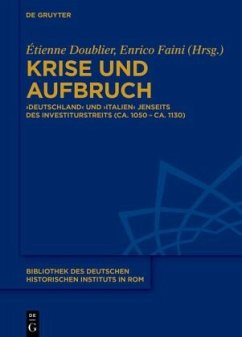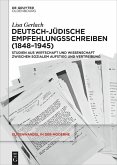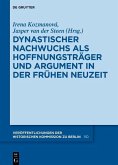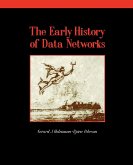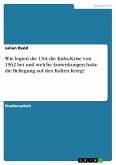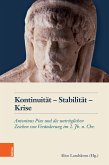Der vorliegende Sammelband, der aus einem binationalen wissenschaftlichen Netzwerk hervorgegangen ist, untersucht eine Reihe prägender und tiefgreifender Veränderungen auf sozialer, institutioneller und kultureller Ebene, die sich um die Wende zum 12. Jahrhundert im römisch-deutschen Reich vollzogen haben. Dabei wird insbesondere der kausale Zusammenhang dieser Entwicklungen mit dem Investiturstreit kritisch hinterfragt. Im Rahmen regionaler Fallstudien zu deutschen und italienischen Gebieten werden vier zentrale Themenbereiche beleuchtet: diskursive Techniken und Praktiken, Herrschaftsstrukturen und -formen, Beziehungsgeflechte und deren Dynamiken sowie mediale Kommunikation. Der Blick über den Investiturstreit hinaus relativiert dabei keineswegs die Bedeutung der ab etwa 1075 im römisch-deutschen Reich ausgetragenen fundamentalen Konflikte auf höchster sozialer und politischer Ebene. Vielmehr zielt die Untersuchung darauf ab, die komplexen kausalen Wechselwirkungen zwischen Mikro- und Makroebenen in verschiedenen Räumen und Bereichen des sozialen, religiösen und politischen Lebens zu analysieren sowie die Weichen für eine Neubelebung des Dialogs zwischen unterschiedlichen Forschungstraditionen zu stellen.
Il presente volume, frutto del lavoro di un gruppo di ricerca binazionale, analizza una serie di profondi e significativi mutamenti a livello sociale, istituzionale e culturale, verificatisi tra la fine dell'XI e l'inizio del XII secolo nell'Impero romano-germanico. Particolare attenzione è rivolta al nesso causale tra queste trasformazioni e la lotta per le investiture, oggetto di una riflessione critica. Attraverso casi di studio regionali su territori tedeschi e italiani, vengono esplorati quattro ambiti tematici di rilievo: le tecniche e le pratiche del discorso politico, le strutture e le forme del potere, le reti e le dinamiche relazionali, nonché i media della comunicazione. Guardare al di là della lotta per le investiture non implica in alcun modo una relativizzazione del significato dei conflitti di principio che, a partire dal 1075 circa, investirono i vertici della gerarchia sociale e politica nell'Impero romano-germanico. Al contrario, l'indagine si propone di mettere in luce le complesse interdipendenze tra i livelli micro e macro nei diversi ambiti della vita sociale, religiosa e politica, gettando al contempo le basi per una ripresa del dialogo tra diverse tradizioni di ricerca.
This volume, the product of a binational research group, examines a series of deep and far-reaching social, institutional, and cultural transformations that took place in the late eleventh and early twelfth centuries in the Holy Roman Empire. Particular attention is given to the causal link between these changes and the Investiture Contest, which is critically reassessed. Four key thematic areas are explored through regional case studies focusing on German and Italian territories: techniques and practices of political discourse; structures and forms of power; networks and relational dynamics; media communication. Looking beyond the Investiture Controversy does not in any way imply a relativisation of the significance of principle-related conflicts that affected the upper echelons of the social and political hierarchy in the Roman-German Empire from around 1075 onwards. Rather, the investigation seeks to illuminate the complex interdependencies between the micro and macro levels in various aspects of social, religious, and political life, and to establish the groundwork for renewed dialogue between different research traditions.
Il presente volume, frutto del lavoro di un gruppo di ricerca binazionale, analizza una serie di profondi e significativi mutamenti a livello sociale, istituzionale e culturale, verificatisi tra la fine dell'XI e l'inizio del XII secolo nell'Impero romano-germanico. Particolare attenzione è rivolta al nesso causale tra queste trasformazioni e la lotta per le investiture, oggetto di una riflessione critica. Attraverso casi di studio regionali su territori tedeschi e italiani, vengono esplorati quattro ambiti tematici di rilievo: le tecniche e le pratiche del discorso politico, le strutture e le forme del potere, le reti e le dinamiche relazionali, nonché i media della comunicazione. Guardare al di là della lotta per le investiture non implica in alcun modo una relativizzazione del significato dei conflitti di principio che, a partire dal 1075 circa, investirono i vertici della gerarchia sociale e politica nell'Impero romano-germanico. Al contrario, l'indagine si propone di mettere in luce le complesse interdipendenze tra i livelli micro e macro nei diversi ambiti della vita sociale, religiosa e politica, gettando al contempo le basi per una ripresa del dialogo tra diverse tradizioni di ricerca.
This volume, the product of a binational research group, examines a series of deep and far-reaching social, institutional, and cultural transformations that took place in the late eleventh and early twelfth centuries in the Holy Roman Empire. Particular attention is given to the causal link between these changes and the Investiture Contest, which is critically reassessed. Four key thematic areas are explored through regional case studies focusing on German and Italian territories: techniques and practices of political discourse; structures and forms of power; networks and relational dynamics; media communication. Looking beyond the Investiture Controversy does not in any way imply a relativisation of the significance of principle-related conflicts that affected the upper echelons of the social and political hierarchy in the Roman-German Empire from around 1075 onwards. Rather, the investigation seeks to illuminate the complex interdependencies between the micro and macro levels in various aspects of social, religious, and political life, and to establish the groundwork for renewed dialogue between different research traditions.

